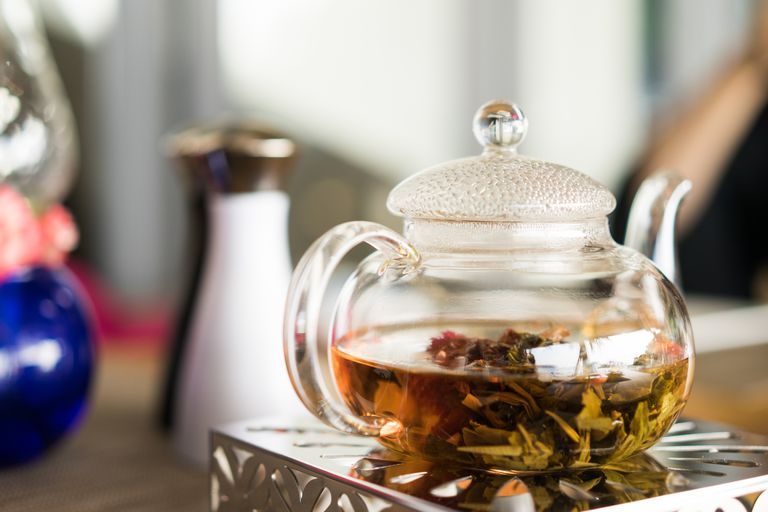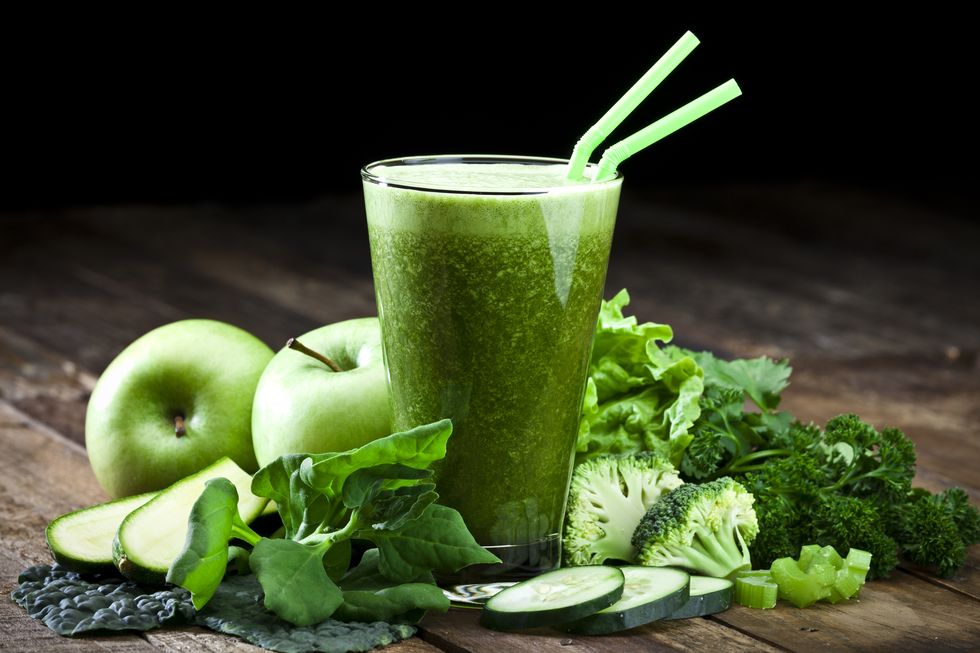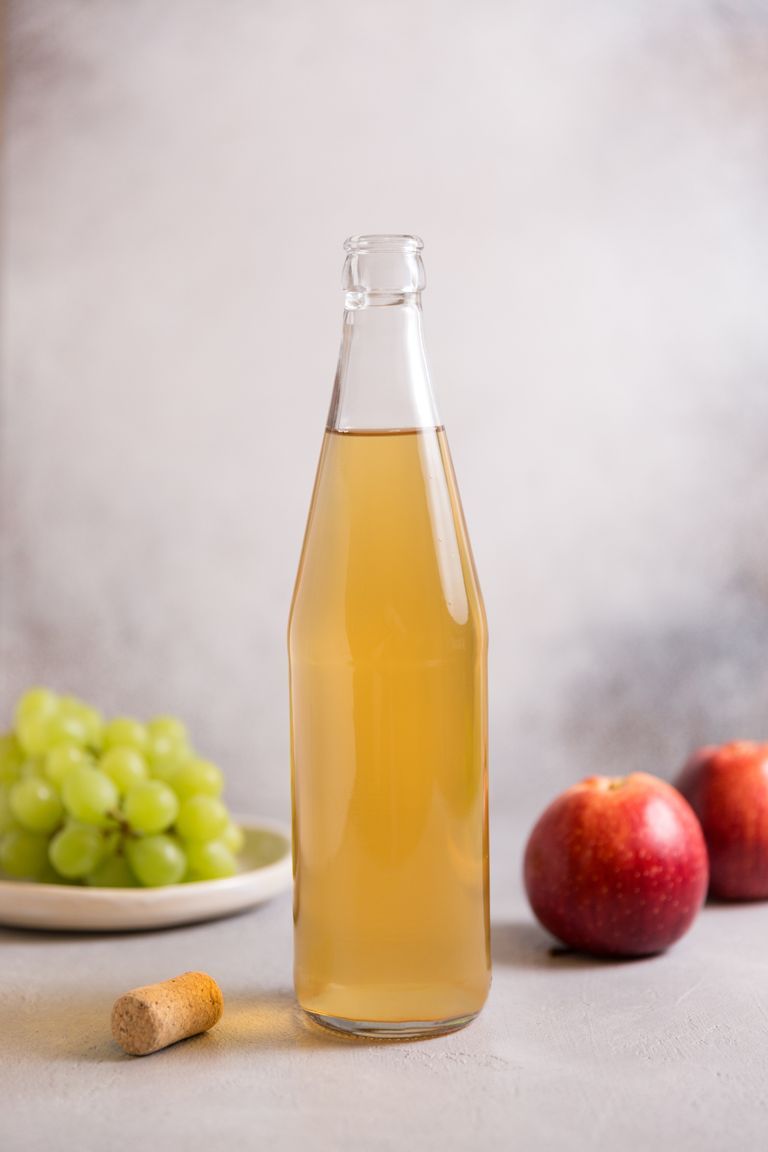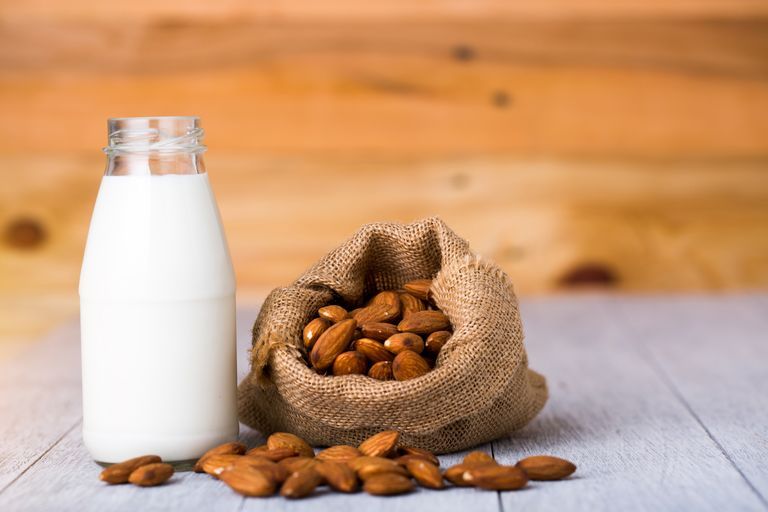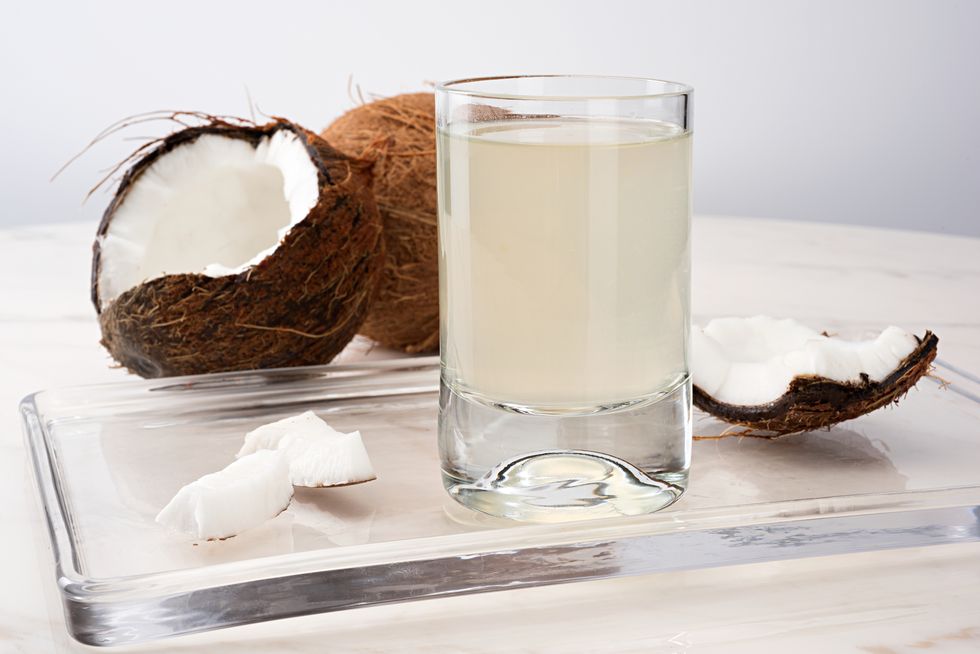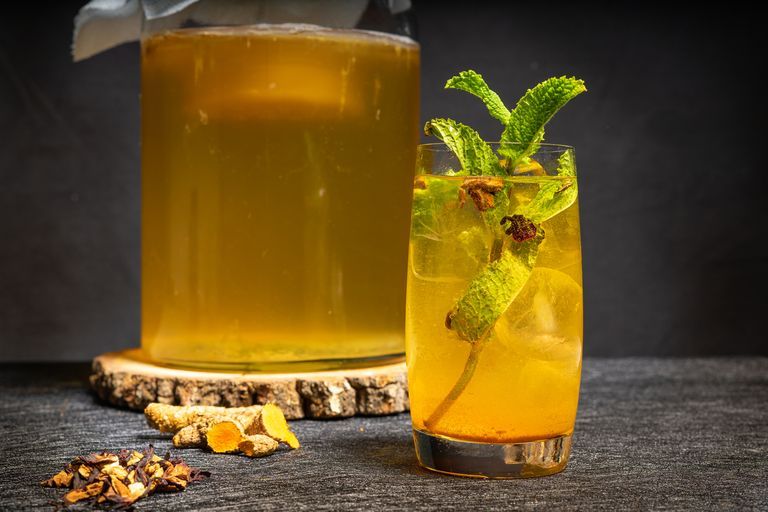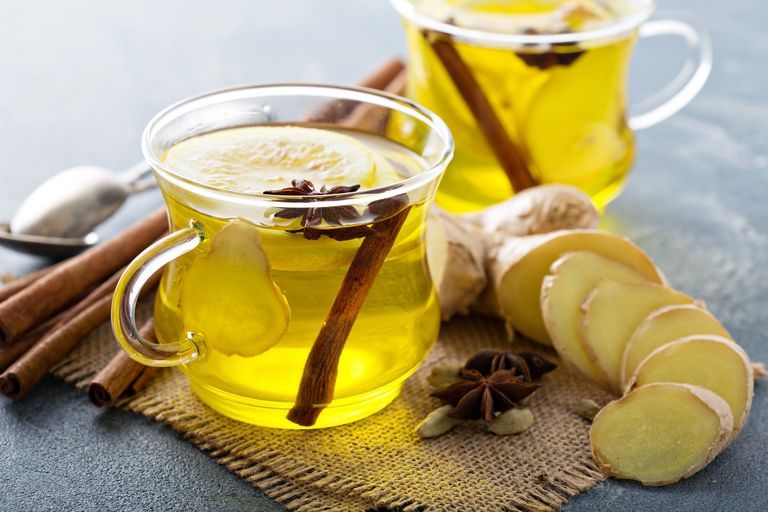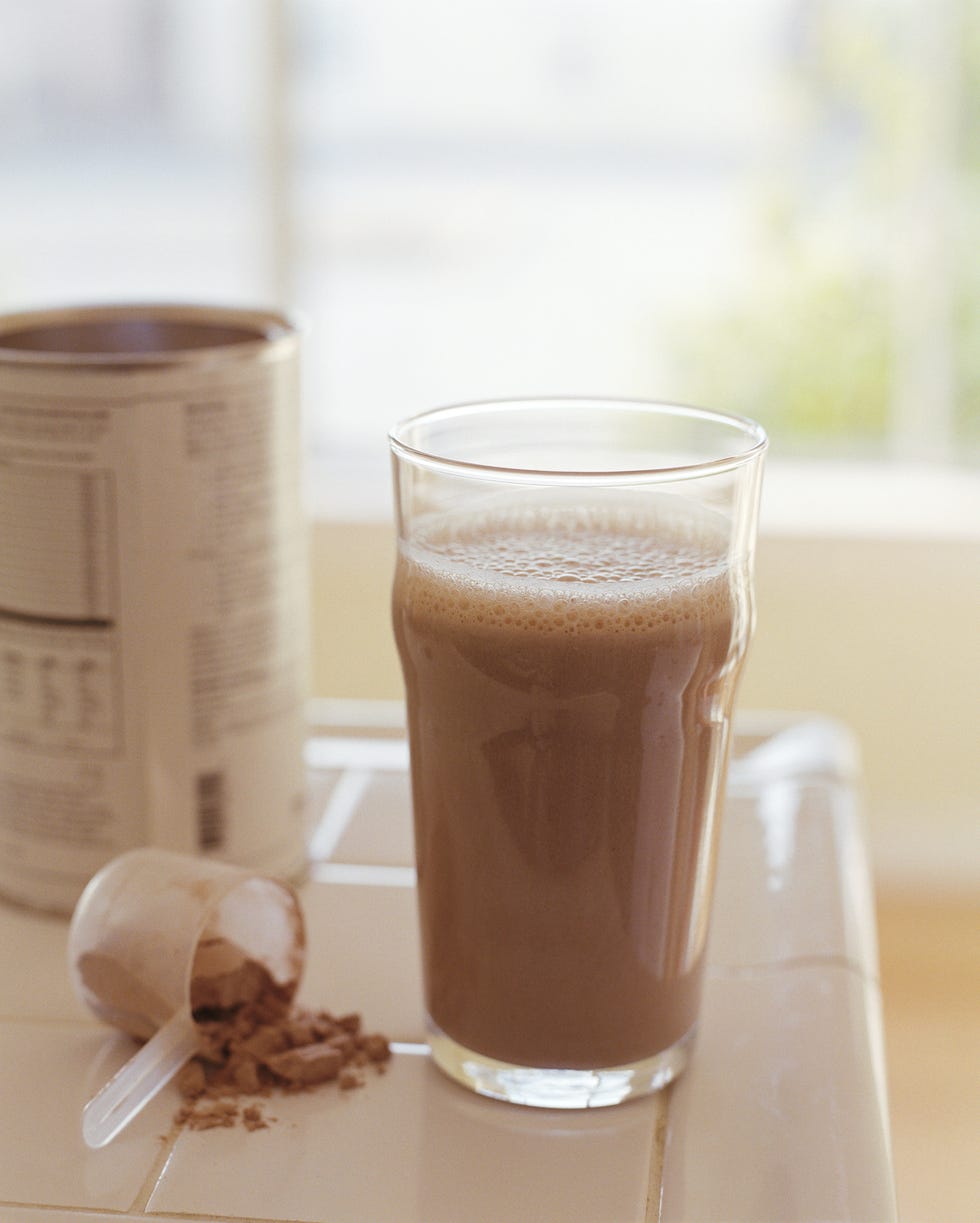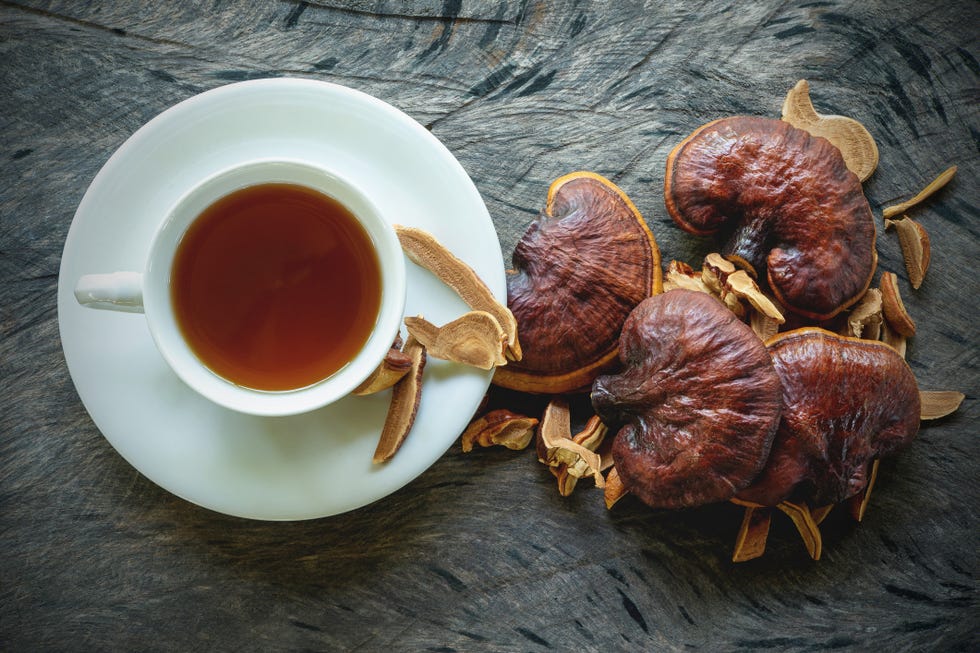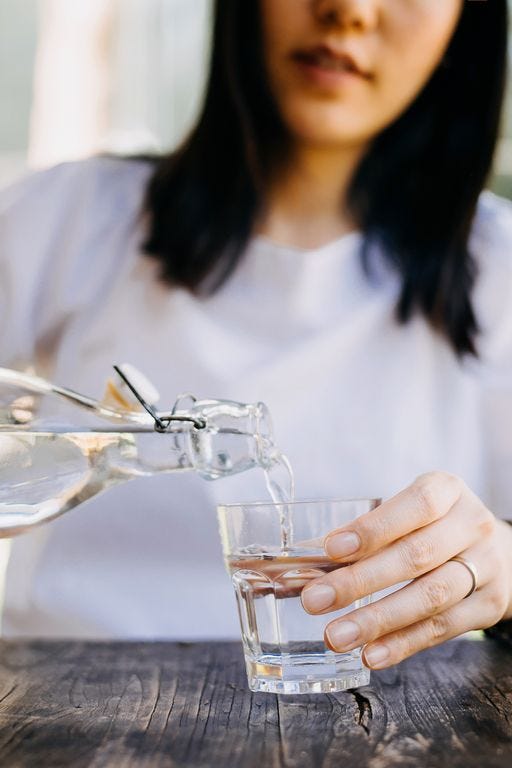
When you’re trying to get into a calorie deficit, you are most likely thinking about eating fewer calories at every meal and snack, and fitting in more daily movement through walks and workouts. But what you drink (and don’t drink) can also make a big impact on your overall weight loss goals.
“Weight loss ultimately comes down to burning more calories than you eat, so to maximize calories from food, we want to minimize our calories from drinks,” says registered dietitian and certified personal trainer Gabbi Berkow, RD, CDN, CPT. That means avoiding or limiting beverages like alcohol and soda, which contain empty calories, but ultimately no real beneficial nutrients.
Unlike food, most beverages do not contain any fiber, which helps you feel fuller longer. This is why you most likely feel peckish soon after drinking a sugar-laden beverage and find yourself reaching for a snack, essentially leading to more calories consumed that day.
In addition to water and zero-calorie beverages, there are a variety of low-calorie options that come with some extra health benefits. Here are 14 dietitian-approved weight loss drinks to add to your shopping list.
Meet the experts: Gabbi Berkow, RD, CDN, CPT, is a nutritionist who specializes in weight loss and weight management, building muscle and losing fat, sports nutrition, and eating disorder treatment.
Jesse Feder, RDN, is a contributor to My Crohn’s and Colitis Team.
Katherine Donelan, RD, is a registered dietitian with Stanford Health Care.
Sheri Berger, RDN, CDCES, is the owner of The Plant Strong Dietitian.
Marissa Meshulam, RD, is based in New York City and specializes in helping patients with chronic diseases manage their conditions through nutrition.
Audra Wilson, RD, CSCS, is a clinical bariatric dietitian who has a master of science degree in applied exercise science and sports nutrition.
1. Water
Eh, a little boring right? Not so fast. Water is imperative for losing weight, according to Berkow. “Staying hydrated is really key for weight loss—and of course health in general,” she explains. “Water is needed for metabolism, circulation, energy, digestion, and every function in your body.”
In fact, several studies found a significant weight reduction associated with increased water intake, according to a 2019 systematic review (although more research is needed to support evidence-based water intake recommendations). “The most effective type of study were the ones that had participants replace their caloric beverages with water,” notes Jesse Feder, RDN, a contributor to My Crohn’s and Colitis Team.
This content is imported from poll. You may be able to find the same content in another format, or you may be able to find more information, at their web site.
Plus, you’ve probably heard that it’s easy to scramble hunger and thirst signals, and that’s true. You might actually be thirsty if you feel hungry. Berkow recommends drinking a full glass of water before eating to properly gauge your appetite. Aim for at least eight cups (64 ounces) a day, and even more if you’ve been super active or sweat a lot. To make it fun, add any sliced fruit you have in the fridge.
2. Green Tea
Green tea extract is linked to a lower weight, BMI, and body fat percentage, a 2019 study in the British Journal of Clinical Pharmacology found. “That’s not to suggest there are no benefits in drinking green tea itself,” says Katherine Donelan, RD, of Stanford Health Care. “On the contrary, the American Institute of Cancer Research recommends drinking one to four cups of green tea a day as part of a cancer risk reduction diet.”
Green tea itself contains caffeine and catechins, which are antioxidants that can support fat burning, says Berkow. Though, some perspective here: You need a calorie deficit to lose weight, so you can’t rely on catechin-containing beverages to majorly increase your metabolic rate.
3. Smoothies
“Smoothies, when done right, are a great option for weight loss, but you have to make sure they are filling enough to be used as a meal or snack replacement,” explains Berkow. “You should also remember they will not keep you as full as solid food would, so be careful not to overdo fruits and sugars.”
Berkow suggests using her formula to create filling and balanced smoothies that have plenty of protein, fiber, unsaturated fat, vitamins, and minerals: Combine at least 20 grams of protein (from protein powder or plain 0 percent Greek yogurt), one or two fruit servings (e.g., bananas and berries), a handful of spinach or another green of choice, one serving of unsaturated fat (such as one to two level tablespoons of nut butter, ¼ avocado, or one tablespoon of chia seeds), and one cup of water or non-dairy milk/skim milk for liquid.
Another option would be to take a low-carb, pre-made protein shake or powder and add ½ cup fruit and a few tablespoons of low-carb yogurt or powdered peanut butter, says Audra Wilson, RD, CSCS, a bariatric dietitian at Northwestern Medicine Delnor Hospital. “This way you get some taste variation without all of the carbs and calories [some] add-ins provide,” she adds.
While there is no research to support that drinking smoothies can help you lose weight, there is no denying that a smoothie is one way to introduce healthier foods to your diet. “If we would typically eat a sausage and egg sandwich for breakfast and now we are opting for a fruit- and veggie-based smoothie, then that is a great choice because we do know that an increase in fruit and vegetable consumption is more closely aligned with weight reduction,” says Donelan.
4. Herbal Tea
“People love herbal teas for a bit of flavor and a non-caffeinated break in the middle of the day,” says Berkow. Depending on the type of tea you choose, it can have different benefits: For instance, lavender and chamomile teas are useful for relaxation or peppermint tea may help with digestion. Other perks include being low-calorie and hydrating.
5. Green Juice
Green juice can pack in the vitamins, minerals, and antioxidants, but it doesn’t have the same fiber as eating the vegetables whole, which is why you need to be mindful of the kinds of juices you consume, according to Berkow. That said, a green juice can be a refreshing and hydrating drink when you’re aiming to lose weight.
“When selecting a green juice, make sure to get ones that contain only vegetables, or are made with one fruit like an apple,” Berkow says. “Those with too many fruits can be really high in sugar and calories, and can actually leave you craving more sugar later on.”
6. Coffee
Coffee, luckily, is an expert-approved bev, according to Berkow. “Black coffee would be ideal because it doesn’t contain any calories, and caffeine can speed your metabolism a bit,” she says. (Although this metabolic bump isn’t enough to cause weight loss on its own.)
Indeed, researchers found that drinking four cups of coffee per day could possibly reduce body fat, in a 2020 study conducted by the Harvard T.H. Chan School of Public Health. Just note that four cups is quite a bit, so don’t all of the sudden start downing that amount in the name of weight loss. It’s also important to note that since coffee is a diuretic, drinking four cups a day will send you to the bathroom frequently,” says Sheri Berger, RDN, CDCES, owner of The Plant Strong Dietitian.
But coffee and tea become high in calories and problematic when tons of sugar and cream or milk are added, says Berkow. She recommends a plant-based sugar substitute like stevia or monk fruit, as these won’t raise your blood sugar. Stick with a small portion of milk or cream.
Oh, and don’t forget to drink water too. It can be easy to sip coffee throughout the day and forget to hydrate with plain H20.
7. Apple Cider Vinegar Drinks
It’s tangy and puckery, but many people like to incorporate a little apple cider vinegar (ACV) into a daily drink or sip on a ready-made bottled version, which are easier to find in grocery stores now. “ACV is linked to many health benefits, such as aiding in blood sugar regulation and helping with weight management by enhancing fullness,” explains Marissa Meshulam, RD, who is based in New York City. In addition, raw, unfiltered ACV (the kind where you can see the cloudy-looking “mother” in the bottle) is a source of probiotics, which can benefit immune and gut health, she says.
In fact, ACV along with a restricted calorie diet can be considered an effective strategy for reducing appetite in overweight or obese individuals, per a 2018 study published in the Journal of Functional Foods.
However, Donelan notes the key is the amount of ACV you use. “Studies have shown that taking two tablespoons daily is necessary to get the benefits, but it is difficult to know if these marketed apple cider drinks have enough apple cider in them, and even if they did, you would need to have one a day to get the benefits,” she adds.
A more cost-effective approach would be to buy the apple cider vinegar itself and take it as a shot or a shooter with a splash of juice. You could also mix it into a smoothie to soften the taste.
Whichever way you decide to enjoy ACV, it is always best to dilute it with something. “Apple cider vinegar (ACV) is very acidic; if it is not diluted, it may erode tooth enamel or cause stomach distress for some people,” says Berger.
8. Nut Milk
Nut milks are low calorie and depending on the milk you choose, can be a great source of iron, vitamin E, and antioxidants, says Berkow. If fortified, nut milks also provide calcium and vitamin D. “They’re also lactose-free, gluten-free, and vegan.” Your best option is unsweetened nut milks.
Plant-based beverages generally contain fewer calories than regular dairy milk, according to a 2020 study, so for people aiming to reduce their calorie intake, switching to nut-based milk, like almond milk, may support that overall goal of weight loss. For instance, just one cup of whole milk contains 149 calories, while only one cup of almond milk has 60 calories.
9. Coconut Water
There’s nothing like sipping a fresh coconut on a beach somewhere, right? Okay, you’re probably sipping yours from a single-serve box you bought at the store, but that can be just as refreshing, too.
Coconut water is full of electrolytes, which is great for rehydrating the body, says Meshulam. “Coconut water is a good source of vitamin C, magnesium, manganese, and potassium,” she explains. These vitamins and minerals play a role in immunity and collagen production in the skin (vitamin C, we’re looking at you), manage blood pressure (hats off you to, potassium), and provide disease-fighting antioxidants (thanks, manganese). Coconut water does contain some sugar though, so be sure to balance out coconut water consumption with regular plain water.
“Overall if you are looking for something different than water to stay hydrated throughout the day coconut water could be a good choice in comparison to higher calorie juice and sports drinks,” says Wilson. “Just be careful to read labels and find the option with the lowest sugar content.”
10. Kombucha
“Kombucha is a fermented tea,” explains Meshulam. “During the fermentation process, health-promoting probiotics are formed, plus it’s made from tea, so it contains antioxidants from the tea leaves.”
Kombucha consumption led to a decrease in overall caloric and macronutrient intake, per a 2021 article published in Current Developments in Nutrition. This may be because kombucha suppressed appetite or helped make participants feel fuller due to the fluid volume, says Donelan.
However, kombucha naturally contains sugar, so read the label and purchase those that have less than 15 grams of sugar per bottle. When poured into a fancy glass, it can make a nice substitute for an alcoholic bev.
11. Ginger Tea
Ginger tea is one of several teas that show up on this list. “Ginger is known to ease stomach upset, specifically nausea, and reduce gas [and] bloating,” says Meshulam. That can help you feel good throughout the day. Ginger tea contains almost no calories and can add variety to your drink rotation. And ginger intake reduced body weight and waist-to-hip ratio, in a 2018 meta-analysis.
Try it as a mid-day sip instead of running out to get a sugary coffee drink as a pick-me-up. However, it is important to remember no one drink or food item is going to make or break your weight loss.
12. Protein Shakes
For weight loss, Berkow recommends consuming at least one gram of protein per pound of body weight. That can be a tall order for the day, but protein shakes can help you get there. (Or, at the very least, get your protein intake up if it’s lagging.) She recommends a protein drink made from a protein powder (supplying 20 grams of protein) mixed with water, a non-dairy milk, or skim/low-fat milk. However, pre-made protein shakes can also work, provided you examine their calorie and sugar content before sipping. Berkow recommends Core Power Fusion for a dairy option, and Owyn for a non-dairy option.
A multi-ingredient high-protein, high-fiber nutritional supplement shake consumed as a preload before breakfast and lunch positively influenced weight management in overweight adults compared with a placebo, in a 2022 study published in The Journal of Nutrition.
“The benefits of protein in weight loss are best seen when the drink is also high in fiber,” notes Donelan. “You can add a supplement alongside your shake, such as psyllium husk, or you can use whole foods that add minimal flavor while bulking up the fiber, such as avocados, cauliflower, chia seeds, prunes, tofu, and white beans.”
13. Naturally Flavored Carbonated Water
When looking for something more interesting than still water, Berger says carbonated water with a splash of natural flavoring or fruit juice is a no- to low-calorie way to quench your thirst with some bubbles.
14. Mushroom Tea
Mushroom tea is another low-calorie tea option, notes Berger. “Studies show it has effective antiviral, antibacterial, antifungal, and anti-inflammatory properties,” she says.
Looking for some options to try? Berger suggests a few brands of mushroom tea including Teecino, Buddha Teas, and Traditional Medicinals. You can find these teas in some grocery stores or on Amazon.
The bottom line: “Many people are not aware of the extra calories that are sliding into their day when reaching for a coffeehouse beverage, boba tea, or fruit juice,” says Berger. This is why choosing beverages wisely can save hundreds of calories per day.

Nikhita Mahtani is an NYC-based freelance journalist covering primarily health and design. She graduated with an M.A in Magazine Journalism from New York University and loves to debunk popular health myths. Her idea of wellness includes a sweaty spin class, wine with loved ones, and experimenting with new recipes in the kitchen.
Journalist
Ashley Martens is a wellness writer based in Chicago. With a lifelong passion for all things health and wellness, Ashley enjoys writing about topics to help people live happier and healthier lives. With a foundation in fitness, food, and nutrition, Ashley covers it all including sexual health and travel topics. Ashley is also a NASM-certified personal trainer and group fitness instructor.


